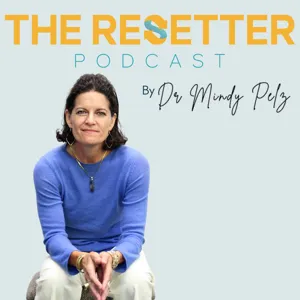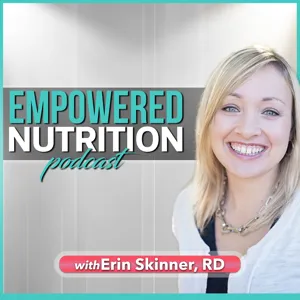Podcast Summary
The Importance of Fiber: A Necessary but Often Overlooked Nutrient: Fiber, abundant in plant-based foods, aids digestion, maintains gut health, and improves heart health. Incorporate fruits, veggies, whole grains, seeds, nuts, legumes, and mushrooms into your daily diet for optimal health.
Fiber, a type of carbohydrate that the body can't digest, is essential for maintaining good health but is often overlooked and underconsumed in diets. Fiber comes in two forms: soluble and insoluble. Soluble fiber, which can be dissolved in water, helps lower glucose and cholesterol levels, while insoluble fiber, which can't be dissolved, aids in digestion and maintaining a healthy gut. Fortunately, fiber is abundant in plant-based foods such as fruits, vegetables, whole grains, seeds, nuts, legumes, and even mushrooms. Despite its numerous health benefits, including improved heart health and better blood sugar control, many people in the US and UK don't consume enough fiber, and it's important to make a conscious effort to include these fiber-rich foods in your daily diet.
Fiber: Beyond Bowel Regularity: A high fiber intake is linked to numerous health improvements, including reduced risk of type 2 diabetes, heart disease, and certain cancers. Fiber is not just limited to plant-based foods, mushrooms also contain significant amounts.
Fiber, often perceived as a boring and mundane nutrient for regulating bowel movements, is in fact a complex and exciting component of our diet with vast health benefits. A recent study with over 135 million person-years of data has shown that a high fiber intake is linked to numerous health improvements, debunking the old notion that fiber is only important for bowel regularity. This new science around fiber is leading to a renaissance in its appreciation, as it has been found to reduce the risk of chronic diseases such as type 2 diabetes, heart disease, and certain cancers. Fiber is not just limited to plant-based foods, but mushrooms also contain significant amounts, making them a great alternative for those who don't enjoy eating plants. So, next time you're thinking of fiber as a boring nutrient, remember the numerous health benefits it brings to the table.
Boost health with fiber intake: Increasing fiber intake can reduce heart disease, cancer, stroke, diabetes risk and improve metabolism, blood sugar regulation, and immune system.
Increasing your dietary fiber intake can significantly reduce your risk of heart disease, certain types of cancer, stroke, and diabetes. This is based on the results of numerous scientific studies. Consuming more fiber can also help you feel fuller for longer periods, improve your metabolic health, regulate your blood sugar and lipids, and even boost your immune system. Fiber's unique property is that, although humans lack the enzymes to digest it, gut microbes do not. When fiber reaches the large intestine, it encounters the gut microbiome, which has thousands of enzymes specifically designed to break it down. This interaction between fiber and gut microbes can lead to various health benefits. Overall, incorporating more fiber into your diet is a simple yet powerful way to potentially extend your life and improve your overall health.
The Role of Gut Microbes in Converting Fiber into Healthful SCFAs: Gut microbes convert fiber into SCFAs, providing essential nutrients, fueling good bacteria, suppressing bad bacteria, repairing the gut barrier, and spreading throughout the body for overall healing effects.
Our gut microbes play a crucial role in breaking down fiber into short chain fatty acids (SCFAs) through their unique enzymes. These SCFAs have numerous health benefits, acting as a primary source of fuel in the colon, supporting good bacteria, and directly suppressing bad bacteria. They also repair the gut barrier and spread throughout the body to provide healing effects. Fiber's transformation into SCFAs is a significant way our bodies receive essential nutrients and maintain gut health. However, it's important to acknowledge that not everyone can easily process and digest fiber, which may lead to digestive issues such as gas, bloating, and abdominal discomfort. Nonetheless, the advantages of fiber far outweigh the potential downsides, making it an essential component of a healthy diet.
Healing a damaged gut and gradually increasing fiber intake: Patiently reintroduce fiber into your diet in small amounts to help your gut adapt and improve tolerance
If you're having trouble digesting fiber due to gut damage, it's important to approach it like a rehabilitation process rather than eliminating it entirely. Start by reducing your fiber intake and gradually increasing it over time. This will help your gut microbes adapt and eventually allow you to tolerate more fiber. Remember, everyone's body reacts differently to different types of fiber, so it's essential to understand the unique properties of the fiber you're consuming and how your body responds to it. While fiber is generally beneficial, it's crucial to remember that there is no one-size-fits-all approach to nutrition. So, instead of aiming for a specific fiber intake number, focus on gradually increasing your fiber intake and listening to your body's signals. In summary, be patient, start low, and go slow when it comes to incorporating more fiber into your diet.
Fiber: The Exciting Nutrient: Embrace fiber as an essential nutrient linked to numerous health benefits, as most Americans fall short of the recommended intake.
Fiber is not the boring nutrient we used to think it was. It's an exciting topic in the world of science, particularly when it comes to gut microbes and short chain fatty acids. While ultra-processed foods may provide an immediate sugar rush and be hard to resist, especially for children, fiber-rich foods offer longer-lasting benefits that leave us feeling great for hours. The latest research shows that fiber and short chain fatty acids are linked to numerous health benefits. However, many people are not getting enough fiber in their diets. According to our research, the average American only consumes around 15 grams of fiber per day, which is far below the recommended 25-38 grams for adults. By prioritizing fiber-rich foods, we can improve our overall health and well-being, and avoid the negative effects of ultra-processed foods. So, instead of dismissing fiber as boring, let's embrace it as the exciting and essential nutrient it is.
Brits and Americans fall short of daily fiber intake: Most people don't consume enough fiber, leading to health concerns. Gradually increasing fiber intake can bring significant benefits. Try Zoe's personalized nutrition program for fiber recommendations.
The average daily fiber intake for Brits and Americans falls significantly short of the recommended 30 grams. This is a public health concern, as most people are deficient in their fiber consumption. Increasing fiber intake, even if it's done gradually, can lead to significant health benefits. For those interested in discovering which high-fiber foods are best for their individual needs, consider trying Zoe's personalized nutrition program. Use the code "podcast" to get a 10% discount at joinzoe.com. Remember, a small change in your diet can lead to significant improvements in your overall health. Tune in next week for more insightful discussions on health and nutrition with Zoe.





